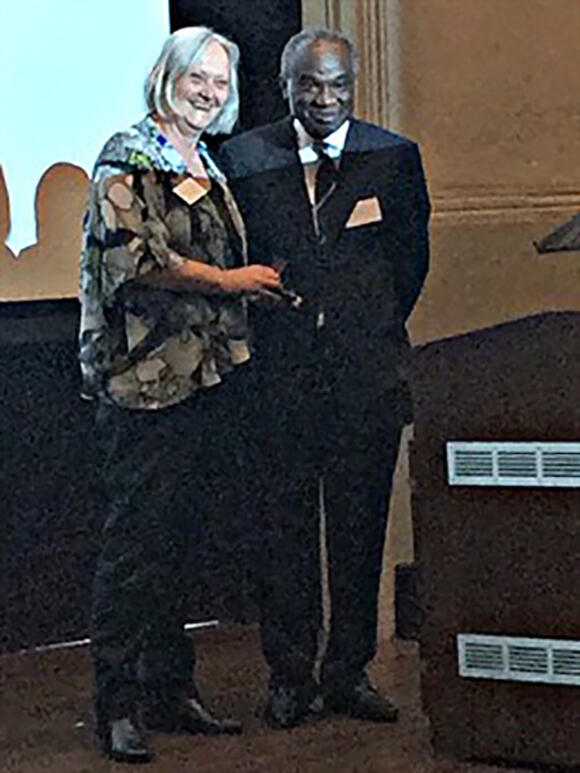
Dr Anarfi Asamoa-Baah, Deputy Director General of the World Health Organization, (WHO), delivered the prestigious LSTM Leverhulme Lecture at the Leggate Theatre in the University of Liverpool’s Victoria Gallery & Museum on Wednesday evening.
His Lecture entitled “Public Health Challenges in the post-2015 era” was introduced by LSTM’s Chairman, James Ross OBE. It was delivered to a large audience, many of whom had taken part in the all day event host by LSTM which brought together experts in Neglected Tropical Diseases (NTDs) from around the world.
During his lecture Dr Asamoa-Baah, an alumnus of LSTM, talked about the beginning of his own clinical career in Ghana and his roles in the Ghanaian Health Services and Ministry of Health fostering within him a passion for public health. He talked about how the last 15 years had been good for global health, how last year 17 thousand less children under the age of five died every day than was the case in the 1990s and that for the first time the number of people receiving Anti retro viral treatment for HIV had exceeded the number of new cases. He also highlighted the reduction in deaths due to malaria in sub-Saharan Africa and the fact that over 70 countries now have master plans for the integration of NTD elimination within public health strategies.
Dr Asamoa-Baah went on to explain that the challenges facing public health in the next 15 years will be significantly different than those overcome in the last 15. He talked about the fact that 70% of the world’s poor now live in middle income countries and that health needs to be looked at in terms of community and not country. He highlighted the growing problem of anti-microbial resistance and that while advances in technology have led to a sustainable food source, as people get richer they are eating more processed food which in turn has led to the fact that chronic non-communicable diseases, such as heart disease, stroke, cancer and diabetes are now the leading cause of death in the world rather than infectious diseases, even in tropical countries.
He talked about the importance of changing the narrative of public health from one of charity to one of self-interest, that to fight disease, disease has to be tackled at source because the world is becoming a smaller place. He used the example of Ebola to show that infectious diseases in the future are changing from diseases to kill many but are feared by few to those that kill less but will terrify further afield, they will move and be more democratic. Using the example of Ebola he illustrated unless every country is prepared, no country is prepared, highlighting the importance of WHO’s goal of universal health coverage. He concluded that we have an opportunity to change public health and that we should take it.
Following the lecture Dr Asamoa-Baah took a number of questions from the audience and was presented with Leverhulme medal by LSTM’s Director, Professor Janet Hemingway CBE. Professor Hemingway thanked him for his lecture and said that she hoped to see him in back in Liverpool very soon as LSTM works towards the challenges he discussed.
LSTM is proud to be one of a select number of institutions given the honor of hosting a prestigious Leverhulme Lecture series. The lecture was established by LSTM’s Professor David Molyneux and Viscount Leverhulme, thanks to the generous support for Lord Leverhulme’s Charitable Trust in 1997. The medal was last presented in 2014 to Dr Tim Evans, Director for Health, Nutrition and Population at the World Bank.